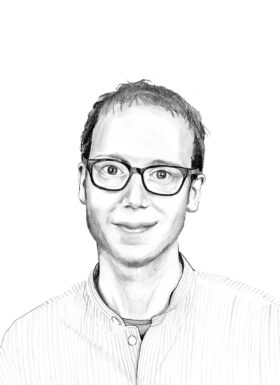-
Ammodo Science
Award for groundbreaking research2024 -
Ammodo Science Award
The Ammodo Science Award for groundbreaking research is intended to stimulate potentially groundbreaking research. Such research is usually the result of team work, and for that reason this Award is for research being carried out by a group of researchers working together, and is intended to recognise the contribution of every member of the group. The Award is presented every two years in four scientific domains: Biomedical Sciences, Humanities, Natural Sciences and Social Sciences.
-
Nomination & Selection
Each edition, the Ammodo Science Award for groundbreaking research includes a cash prize of 1,600,000 euros for each of the science domains Natural Sciences and Biomedical Sciences and a cash prize of 800,000 euros for each of the science domains Humanities and Social Sciences. The rectors of the fourteen Dutch universities affiliated to Universities of The Netherlands (UNL) may nominate a maximum of one research project per scientific domain.
-
Winners
The Ammodo Science Award for groundbreaking research focuses on potentially groundbreaking research and ensures that all researchers involved in the winning project are recognised and rewarded.
Floris de Lange
Laureate Social Sciences 2021

Floris de Lange (1977) received both his master’s degree in Artificial Intelligence and PhD in Cognitive Neuroscience cum laude from Radboud University Nijmegen. Shortly thereafter, he set up the Predictive Brain Lab at the Donders Institute and since 2018 he has been Professor of Perception and Cognition at Radboud University. De Lange is an alumnus of the Young Academy.
De Lange has received several awards and a large number of grants for his research, including an ERC Starting Grant, ERC Consolidator Grant, a Veni and Vidi grant from NWO and the prestigious Heineken Young Scientist Award (2012) for Cognitive Science. In 2020, a TV broadcast was devoted to his research in the VPRO series Grote Vragen (Big Questions).
WebsiteResearch focus
Floris de Lange’s research unravels how perception arises from the neurobiological processes in the brain, and in particular how the brain operates as a prediction machine.
The predictive brain
Mind reading with MRI scanners, the human brain as a prediction machine – Floris de Lange’s research almost sounds like a science fiction film. De Lange has been fascinated by the human psyche for many years. The fact that his own father suffered from severe depression only intensified his interest. This made De Lange realise that what we perceive is created by our brains, and that each brain therefore manufactures its own unique perceptions.
Our brain indeed makes predictions all day long. When you want to open the front door, your brain predicts how forcefully you should push down the door handle, and when you take a carton of eggs out of the fridge, it predicts roughly how heavy the carton will weigh. These patterns of expectation are useful for noticing changes, for example if the egg carton has leaked because of a broken egg, you can react quickly. De Lange has shown that predictions make the brain more energy-efficient: they allow it to save computing power for processing information that deviates from what is expected.
De Lange’s research focuses in particular on the question of how the brain’s continuous stream of predictions is generated at the neurobiological level. Where, for example, is precognition located in the brain (in the case of the egg carton, this precognition includes the fact that you remember how many eggs were still in it), and how is this information combined with new input from your senses? These are questions that have hardly been studied at all previously.
Thanks to De Lange’s incisive research, it has now been established that our brain is not a machine that processes information passively, as was long believed. On the contrary: the brain is a prediction machine that actively uses everything it learns to predict the future. De Lange has also shown when, how and why the visual brain combines predictions with visual information. A pioneering insight was that precognition is located in a different layer of the brain from that which processes incoming information. If you expect to see a rabbit, that expectation is in a different layer than when you actually see the rabbit. This knowledge can, among other things, lead to a better understanding of what goes wrong in people with schizophrenia who can no longer distinguish properly between reality and thoughts.
One theme De Lange is currently focusing on is what happens in the brain when we are surprised. People are curious creatures and are constantly looking for surprises and adventures, while those are precisely the situations which the brain can do little to predict. De Lange studies how exactly this process works and what the brain gains from this curiosity.